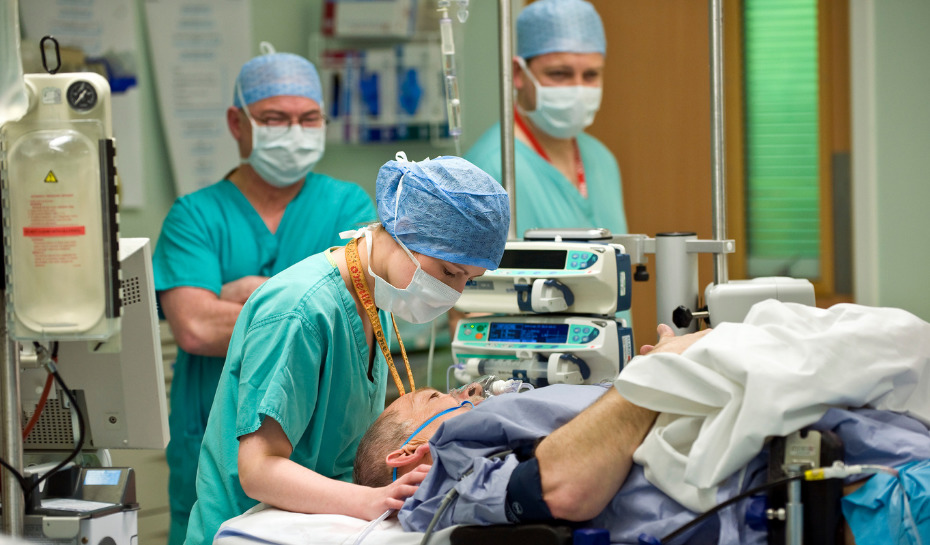26 September 2023
Climate Challenge Grants support reduction of single-use plastics across NHS Lothian
Tagged by
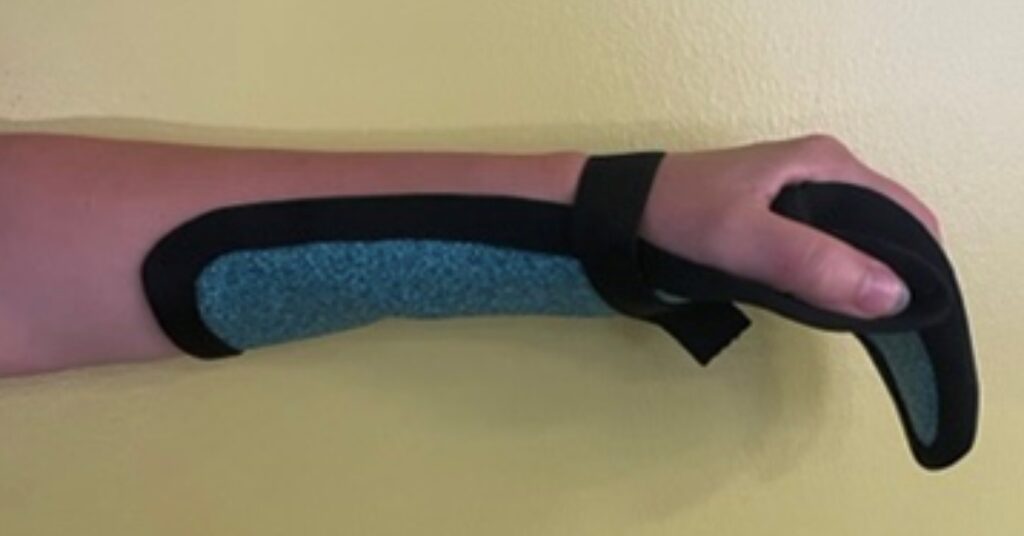
Thanks to funding from NHS Lothian Charity through their Climate Challenge Grants programme, NHS Lothian is rolling out the use of woodcast splints in hospitals across the region. This is part of their drive to reduce single-use plastics and their commitment to more sustainable healthcare.
Single-use plastics are typically used once or for a short time before being thrown away.
Almost 80% of all plastic ever made still sits in landfills or the natural environment, and at least 14 million tons of plastic end up in our oceans every year.
As part of efforts to reduce the impact of healthcare on the environment, NHS Lothian teams applied for funding from the Charity to pilot a product made from woodchip, derived from sustainably managed forests, with biodegradable glue as an alternative to the thermoplastics currently used for splinting.
The project started in late 2022 at the Royal Hospital for Children and Young People (RHCYP) and has been piloted at the Royal Infirmary of Edinburgh and St John’s Hospital.
It will now be rolled out within all hand therapy departments across NHS Lothian.
The biodegradable splint materials are distributed in ecological packaging and produced with 100% renewable energy. The products are heated with a dry heat in an oven and modelled into the required shape. When care is complete, the splints can be disposed of in a compost bin at home!
Splints are typically used to support and stabilise tendon injuries, fractures, dislocations or control pain.
Judith Montgomery, a Physiotherapist at the RHCYP and one of the project leaders, said:
We know we must be more sustainable, and doing so without compromising care or the patient experience is our main goal.”
Anne Jerman, also a project leader based at RHCYP, said:
This product is sensitive enough to be used by all ages. The change provides an overall improvement for patients, a significant reduction in single-use plastic, less environmental impact and even a slight reduction in cost.”
Jane Hopton, NHS Lothian’s Sustainability Lead, commented:
This is an excellent example of adaptation and how we can provide more environmentally friendly methods of care.
“Every step towards increased sustainability makes a difference and I want to thank our teams and NHS Lothian Charity for their continued commitment and support.”
Jane Greenacre, Head of Programmes at NHS Lothian Charity, said:
It is great to see such huge motivation and commitment to embed sustainable practices across NHS Lothian, and we are delighted to support some of this work through our Climate Challenge Grants.
“These grants help staff explore new ideas as well as new ways of working and thinking which in turn supports NHS Lothian to meet their ambitious sustainability goals and commitments. These small changes can have a big impact, and by working together, we can develop a health service that is environmentally sustainable for future generations.”
Read more about how NHS Lothian Charity is supporting the improvement of health and wellbeing across NHS Lothian
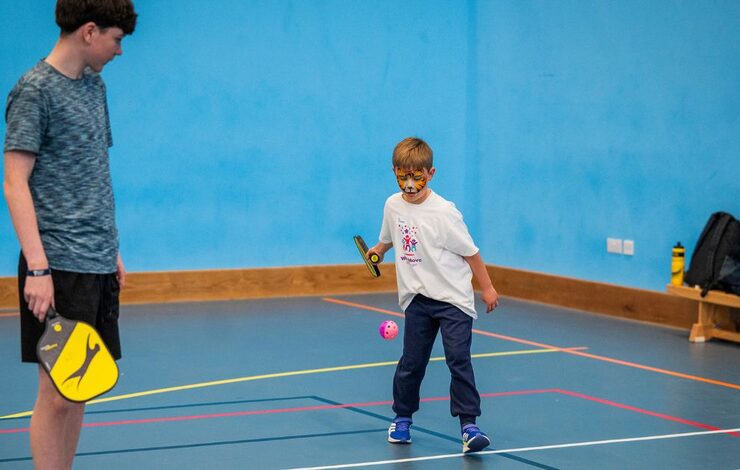
Wee Move Event: Helping Children with Cancer Rediscover Confidence, Joy and the Freedom to Play
“I definitely came home with my heart full.“
Staff from across the hospital volunteered their time because they believed in what the day represented: a reminder that childhood doesn’t stop during treatment, it simply needs space, understanding, and compassion to flourish.

Giving staff the time, space and support to learn together: Falls Learning Conference 2025
Falls remain a leading cause of injury, loss of independence, and hospital admission among older adults in Lothian.
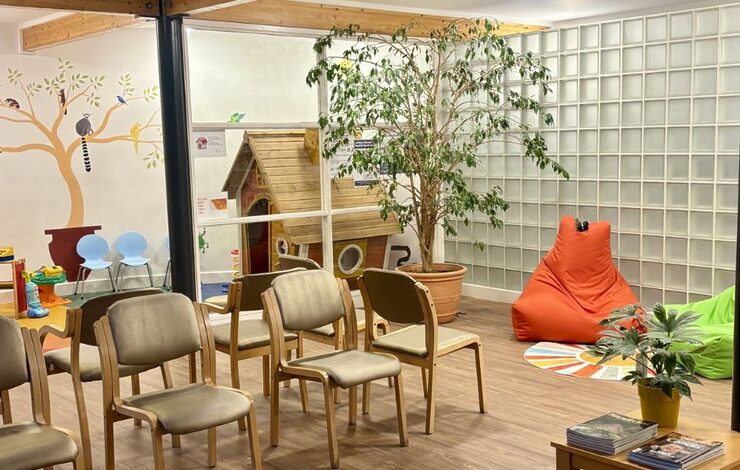
Creating a Calming Space: Enhancing the Waiting Room at Dunbar Medical Practice
Waiting for an appointment can be stressful for patients and families. Thanks to generous donations, Dunbar Medical Practice has transformed their waiting area into a warm, welcoming space where patients and families feel more comfortable and at ease.
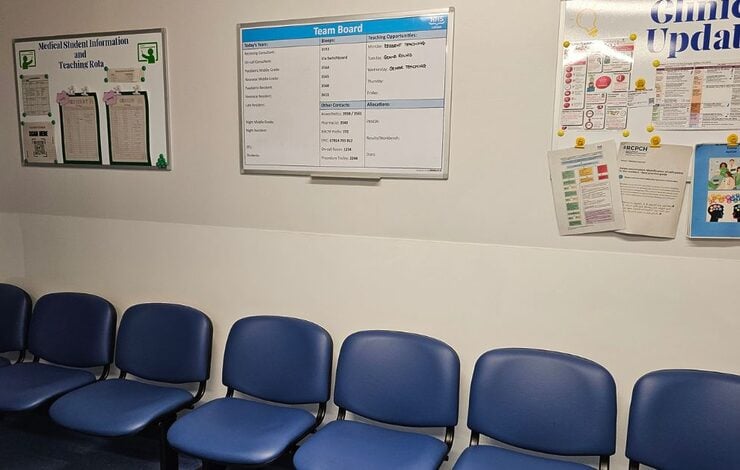
Creating a Brighter, More Welcoming Space: Upgrading the Children’s Ward Hub at St John’s Hospital
The hub on the children’s ward at St John’s Hospital is the heart of the team’s work. A space where staff coordinate care and sometimes invite families to discuss treatment plans
